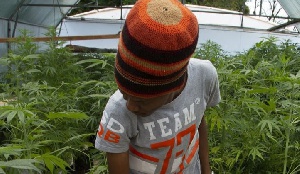 Malawi follows in the footsteps of other African countries, including South Africa
Malawi follows in the footsteps of other African countries, including South Africa
Malawi is to start the commercial production of cannabis for medical and industrial use, according to Reuters, which cited Lilongwe’s new Cannabis Regulatory Authority.
The head of the regulatory authority, Boniface Kadzamira, said more than 100 applications have been received for licensing and they are currently under consideration for approval.
Fees for licensing marijuana for medical and industrial use in Malawi will range from $100 to $10,000 a year. Licensing will cover the cultivation, selling, storage, distribution of either class of industrial and medicinal hemp, said the county’s agriculture ministry.
Malawi will also allow public hospitals to pay $100 as well as $200 for private hospitals as license fees to dispense cannabis medicines.
“We have received an overwhelming response in terms of applications for licenses, but applicants must appreciate that we’ll not give everyone a license at once,” Kadzamira said, according to Reuters.
Kadzamira added hemp has the potential to surpass earnings from tobacco, currently the country’s main export crop.
“Our view as regulator is that if we get honest investors, the hemp industry can supplement export revenues from tobacco, and in some cases, surpass it. But it will not immediately replace tobacco,” he added.
The cultivation and processing of cannabis for medicines and hemp fiber used in industry were made legal by Malawi’s parliament in a new bill. However, the bill did not decriminalize recreational use of cannabis.
Agriculture is the mainstay of Malawi’s economy, offering nearly 80 percent of employment to the population. Tobacco is the country’s major export, however, earnings from tobacco have fallen dramatically over the years in part due to declining demand and poor weather.
During the 2020 season, Malawi’s tobacco output fell by 31.3 percent, resulting in a 26.4 percent decline in the country’s overall tobacco revenues. Due to the disappointing earnings, the country’s tobacco auctioneer, Auction Holdings, has failed to pay salaries for the last two months, according to Reuters.
The economic potential of the fast-growing global medicinal and industrial cannabis industry has been the main driver of the law change in Malawi, according to the Guardian.
The World Bank in 2019 said Malawi “remains one of the poorest countries in the world despite making significant economic and structural reforms to sustain economic growth”. The national poverty rate was more than 50% in 2016.
A growing number of countries around the world are either legalizing or relaxing laws on cannabis as attitudes towards the drug change. They include several in southern Africa, including Zambia, Lesotho, and Zimbabwe.